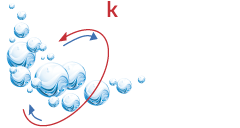
Dedicated to research in the field of technical thermodynamics and to the energy efficiency improvements in thermal energy systems, primarily in the buildings and industry, in the context of the regulations subjected to the implementation of EU Directives in national legislation.
|
|
Conference VenueThe INTERKLIMA International conference has been held in the context of the International Fair of Heating, Refrigeration, Air Conditioning and Potable Water Treatment as an event of the Zagreb Fair since 1969. The event has a bienal character. The adress of the conference venue: Zagreb Fair
General information about ZagrebThe city of Zagreb, capital of Croatia, on the historic and political threshold between East and West, illustrates both the continental and Mediterranean spirit of the nation it spearheads. Zagreb is the cultural, scientific, economic, political and administrative centre of the Republic of Croatia, and is home to the Croatian Parliament, Government and President. Zagreb dates back to the Middle Ages as the settlements on two hills: secular Gradec, today known as the Upper Town; and ecclesiastical Kaptol. The first written record of Zagreb dates back to 1094 when the Hungarian king Ladislav established the Kaptol diocese on his way to the Adriatic Sea. The Zagreb Cathedral still dominates the skyline with its neo-Gothic style, while the Renaissance walls surrounding it are rare preserved examples of their kind in this part of Europe.
Square of King Tomislav The two hills, adversaries in the Middle Ages, were separated by the Medveščak creek and its mills. The creek valley sat along the presentday street of Tkalčićeva and it still runs underneath it, out towards the river Sava. In time the threats of attack subsided and the city started to spread out around the valley. A trading centre below the two settlements evolved into what is now the main square of Ban Josip Jelačić. This is the heart of the city and a meeting point for all Zagreb citizens. There is also a legend of how the city was named. On a sunny day, a brave governor, exhausted and thirsty from battle, asked a girl named Manda to ladle (zagrabiti) him out some water from the spring. This became Manduševac and the city became Zagreb.
Ban Josip Jelačić Square More information can be found here. Nightlife in ZagrebAs you might expect from a capital city, and a metropolis of just over one million people, Zagreb enjoys a deserved reputation for a riotous nightlife with the new millennium promising plenty more to celebrate than the last one. A mixture of sassy students and suave city slickers ensures that the mushrooming bars and clubs are never short of a customer or two, and with Zagreb finally on the weekends away destination list, thanks to cheap Wizzair flights the number of tourists is set to rapidly to increase and give the nightlife a dash of cosmopolitanism. A good place to start any night out is Tkalciceva street in Gornji Grad. A pretty throughway it also boasts the city's highest concentration of bars and cafes which are perfect for taking in the capital at a slow pace. The Main Square also makes a decent place to begin the night, with a continental cafe vibe presiding and a chance to see the world go by. More information can be found here.
General information about CroatiaCroatia (Hrvatska), officially the Republic of Croatia (Republika Hrvatska) is situated in South-Eastern Europe at the crossroads of the Adriatic Sea and the Pannonian Plain. Croatia borders with Hungary in the north, Slovenia in the north-west, Serbia in the north-east, Bosnia and Herzegovina in the total length of the lower part of the Croatia’s crescent shape, Montenegro in the extreme south, and Italy and Slovenia on the Adriatic Sea.
View of the town of Hvar Croatia is classified as an open and developing economy by the International Monetary Fund and a high income economy by the World Bank. Traditionally, Croatia is a tourism oriented country. Historical heritage, natural beauty and a pleasant climate make up the framework which, together with high quality accommodation, gastronomic excellence and a rich supply of activities and entertainment, enables Croatia to attract the modern-day tourist.
The Pula Arena CurrencyThe Croatian currency unit is the kuna, which consists of 100 lipa. Bank notes are in denominations of 5, 10, 20, 50, 100, 200, 500 and 1000 kuna, and coins in denominations of 1, 2, 5, 10, 20 and 50 lipa and 1, 2 and 5 kuna. 1 EUR ~ 7,5 Kn International credit and debit cards such as Visa, Mastercard, American Express and Diners' Club are accepted in Croatia in almost all hotels, shops and restaurants. Safety Croatia is a safe country in which you can move around without concern for your security. |
|



